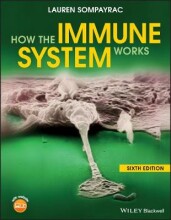Nutrition for the Ageing Brain
14 important questions on Nutrition for the Ageing Brain
What were the conclusions from the following trails about vitamin B6, B12 and folate and the ageing brain
- VITACOG trail
- FACIT trail
- B-proof trail
- VITACOG trail
- 270 MCI subjects (aged >70yrs) - placebo vs combination (20mg B6, 0.5mg B12, 0.8mg folate) - for two years
- 30% reduction in brain atrophy + less cognitive decline (MMSE)
- But: only if high baseline homocysteine levels
- FACIT trail
- 818 cognitively healthy subjects (50-70y) with elevated Hay and normal serum vitamin B12 - placebo vs 800mg folic acid - for three years
- improved memory, information processing speed, sensorimotor speed
- B-proof trail
- 2,919 cognitively healthy subjects (>65y) with elevated homocysteine - placebo vs 400 mg folic acid and 500 mg vitamin B12 - for two years
- no effect on cognitive functioning
What are the possible explanations for the mixed findings of B-vitamin trials?
- Study population (baseline nutrient level, cognitive state)
- Beneficial (interactive) effects of B-vitamins on other nutrients (omega3-FA/DHA status)
What kind of organ is the brain? And what does it need
- Brain = fatty organ = 60% fat
- 2% of the total body weight
- 20% of total energy intake form food --> brain
- neurons --> phospholipid bilayer + myelin
- in need of healthy omega3 fatty acids (PUFA)
- docosahexaenoic acid (DHA)
- eicosapentaenoic acid (EPA)
- alpha-linolenic acid (ALA)
- improve synaps/vesible fusion (!)
- omega3 (PUFA) decrease decrease leads to depression, cognitive pairment, ADHD
- arachidonic acid (AA)
- bioavailability omega3 PUFA: krill vs fish oil
- Higher grades + faster learning
- Never study anything twice
- 100% sure, 100% understanding
What kind of organ is the brain? And what does it need
- Brain = fatty organ = 60% fat
- 2% of the total body weight
- 20% of total energy intake form food --> brain
- neurons --> phospholipid bilayer + myelin
- in need of healthy omega3 fatty acids (PUFA)
- docosahexaenoic acid (DHA)
- eicosapentaenoic acid (EPA)
- alpha-linolenic acid (ALA)
- improve synaps/vesible fusion (!)
- omega3 (PUFA) decrease decrease leads to depression, cognitive pairment, ADHD
- arachidonic acid (AA)
- bioavailability omega3 PUFA: krill vs fish oil
What are the functions of the omega3 FA?
- Omega 3 acts as reservoir for bioactive molecules
- omega 3 modulates gene expression
- [omega3] competes with [omega6] for incorporation in membranes
- external stimuli --> release AA
- AA metabolism --> production:
- prostaglandines
- leukotrienes
- thromboxanes
- targeted by NSAIDs (ibuprofen) or COX2 inhibitors (montelukast)
What are the possible explanations for mixed finding of omega-3 fatty acids trails:
- study population: extent of cognitive im
pairment
- dose too low? [(2152mg/d) --> yes increase together with b-vitamins]
- treatment effect depends on baseline nutrient level
- applies to micro & macronutrients
What are the most important food groups for the ageing brain
- Fatty fish (salmon, tuna, sardines, mackerel, and trout)
- Nuts, oils, seeds
- Whole grain products
- Chicken/poultry (white, low-fat containing meat)
- Fresh (greeny) leafy vegetables
- Blueberries (anthocyanins!), fruit
- Legumes (peulvruchten)
- Fermented yoghurt, dairy (zuivel)
- Red wine, berry/grape juice (resveratrol) + coffee/green tea
- VitD suppl from age of 70 (female from 60 onwards)
- VitB12 suppl in case of vegan (no animal products)
- Less good: fried food, red meat, cake/sugared biscuits, margarine
= MIND diet!
What is the evidence of fish and seafood on the ageing brain?
- Benefits attributed to omega-3 fatty acids
- only observational proof
- already from ±1 portion of fish per week
What is the evidence of dairy on the ageing brain?
- Only observational proof
- no clear conclusion due to methodological variability
- NOTE: Parkinson's disease risk!
- Uric acid (?) = neuroprotection: levels are lowered via casein and lactalbumin in low-fat skimmed milk?
meat: no clear association (heme content)
What is the evidence of berries on the ageing brain?
- ±n=10 intervention studies have been done
- mainly blueberry, but also cherry, strawberry, blackcurrant, aronia berry
- doses varied between 5g-150g per day
- higher doses: positive effects on cognition within 3 months
What is the conclusion/results of the intervention study with MedDiet: PREDIMED
- MedDiet + nuts
- increased memory
- MedDiet + olive oil
- increase frontal & global cognition
What is the evidence of the MIND diet on the ageing brain? And what is the MIND diet
Mediterranean-Dash Intervention for Neurodegenerative Delay
- More strongly associated with slower cognitive decline than MedDiet & DASH diet
- But: only observational proof
- First intervention study ongoing in the US & NL
What is done with the FINGER study? And what are the results
1260 Finnish elderly with increased CVD risk (24 months)
- regular health advice
- nutritional advice. Exercise program, cognitive training, monitoring vascular risk factors
results FINGER
- intervention group performed better than control group
- Global cognition
- Executive function
- Processing speed
What are the methodological challenges when looking at the ageing brain?
- Selection study population
- extent of cognitive impairment
- baseline nutrient levels
- study duration
- obsevational studies: preferable >20y
- Intervention studies: preferably >1.5 y
- Method of nutritional status assessment
- confounding of non-dietary factors
- multidimensionality of diet
- interactions between nutrients
- multidimensionality of underlying mechanisms
- multidimensity of cognitive functioning
The question on the page originate from the summary of the following study material:
- A unique study and practice tool
- Never study anything twice again
- Get the grades you hope for
- 100% sure, 100% understanding






























